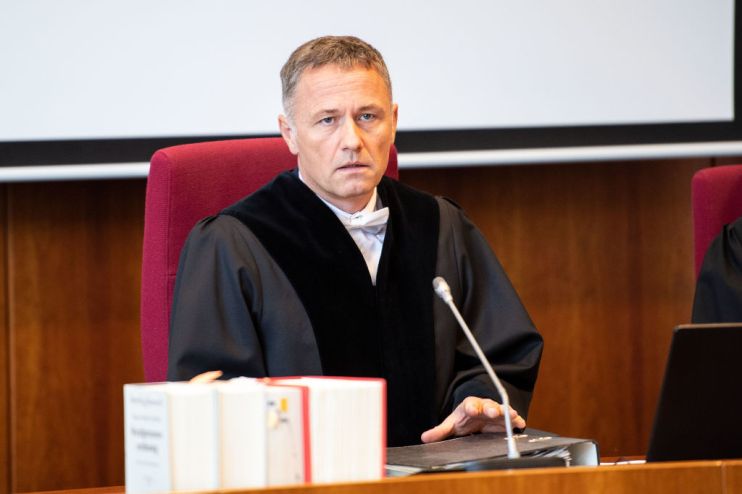Cum-ex: The mammoth European financial crime scandal comes to London

Denmark has a long history of exports across the North Sea. The Vikings, Bacon, Lego, hygge, the Schmeichels, and now, mammoth fraud trials.
The Danish taxman is pursuing a $1.9bn (£1.5bn) fraud claim through the UK courts against British businessman Sanjay Shah and more than 70 other individuals and companies.
The huge High Court case could take up to 50 weeks and cost more than £150m in legal fees.
It is part of the so-called cum-ex scandal that has rocked Europe and led to arrests, raids and court cases dragging in some of the financial world’s largest players.
The name comes from the Latin for with-without and refers to the stocks with and without their dividends.
Cum-ex trading involved using a now-closed legal loophole to claim tax credits for both buyers and sellers of shares by buying shares just before their dividends expired and then selling them on straight away.
One City lawyer said: “If you look at the machinery that backs up this particular enterprise, you have got very serious banks being advised by very serious law firms engaging in wide-scale behaviour that on any view looks decidedly dodgy.”
Police on the scene
Police in Germany have raided Commerzbank, stock exchange Deutsche Boerse and law firm Freshfields in relation to the scandal.
In August it emerged Freshfields had agreed to a €50m (£42m) settlement with the administrators of the German arm of Canadian bank Maple that was closed by German authorities in 2016. Freshfields denies all wrongdoing.
The firm’s former head of tax is facing criminal charges in relation to alleged fraud.
Last week auditor EY was hit with a €95m lawsuit by Maple’s administrator which it said it would fight.
British professionals are alleged to have played leading roles in the scam.
Two British bankers, Nicholas Diable and Martin Shields, are the first people to go on trial for cum-ex trades. They are accused of running a phoney trading scheme to make illegitimate double tax reclaims of more than €450m.
Both face jail terms of up to 10 years, as well as a court order to repay money they earned from the trades if found guilty.
“This was a collective case of thievery from state coffers,” judge Roland Zickler said at the opening of the trial in December.
The fallout from the scandal continues to spread, with 60 current and former staff at Australian bank Macquarie, including chief executive Shemara Wikramanayake and her predecessor Nicholas Moore under investigation.
Macquarie’s links with cum-ex have led to major Danish pension funds saying they will stop doing business with the bank.
In a report last week, shareholder advisers the Pensions & Investment Research Consultants (PIRC) said there was a risk of further banks being getting drawn in.
“As the ripples of the cum ex investigation spread further out it would not be surprising to see other financial institutions facing similar reputational risks,” Pirc said.
Neil Swift, a partner at law firm Peters & Peters, said: “The facts seem to suggest these things were carried out in London and other people will have been involved so it is possible those involved will find themselves subject to regulatory attention.”.
Playfair in Mayfair?
Last week Denmark’s economic crime agency said it had seized a series of Mayfair townhouses worth £14.7m from Shah as the mammoth case against him drags on.
The former boss of hedge fund Solo Capital has denied wrongdoing, arguing that he received two separate legal opinions that the trades were legal.
At a recent hearing in the huge case there were 19 firms of solicitors and 79 defendants represented.
There were too many lawyers to fit in the courtroom, so audio had to be piped into a separate room.
Denmark has not brought any criminal charges against Shah, who is based in Dubai.
If it did bring criminal proceedings it would likely be in Shah’s absence due to the remote possibility of extraditing him to Denmark.
“It would be a case of Hamlet without the prince,” one lawyer involved in the trial said